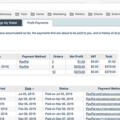What are the potential home equity and tax strategies for wealthy seniors?
Seniors
could
choose
to
employ
home
equity
through
a
reverse
mortgage
or
other
equity-tapping
product
to
manage
a
series
of
expenses
in
retirement,
but
when
it
comes
to
managing
their
tax
burden,
it
can
get
more
complicated.
Steve
Resch,
vice
president
of
retirement
strategies
at
industry-leading
lender
Finance
of
America
Reverse
(FAR),
told
Financial
Advisor
that
the
utility
can
vary
when
it
comes
to
tax
savings.
“It
depends
on
an
individual’s
tax
bracket
and
their
priorities,
but
there
are
several
options
for
higher-net-worth
individuals,”
Resch
said.
“One
option
is
using
home
equity
to
fund
a
Roth
IRA
conversion,
shielding
wealth
from
higher
rates
in
the
future.”
Certain
clients
can
use
home
equity
to
pay
the
taxes
on
such
a
conversion,
which
would
include
comparing
mortgage
rates
and
the
projected
level
of
home
price
appreciation
“against
the
projected
growth
of
income-tax-free
Roth
assets
and
whether
the
client
expects
to
be
in
a
higher
tax
bracket
in
the
future,”
Resch
told
the
outlet.
But
the
2017
Tax
Cuts
and
Jobs
Act
(TCJA)
is
also
scheduled
to
sunset
at
the
end
of
2025
unless
Congress
acts
to
either
extend
or
replace
it.
This
also
needs
to
be
considered
in
any
potential
strategy
for
wealthy
clients.
Gifting
the
money
before
the
law
expires
could
be
an
option
to
explore,
Resch
said.
“Gifts
up
to
the
annual
exemption
[limit]
don’t
require
a
gift
tax
return
[to]
be
filed,”
Resch
told
Financial
Advisor.
“High-net-worth
individuals
could
transfer
substantial
assets
to
their
choice
of
recipients
now
with
the
higher
estate
tax
exemption
limits.”
If
a
wealthy
client
used
a
reverse
mortgage
and
gifted
the
proceeds,
there
would
be
no
tax
liability
“unless
the
gift
exceeded
the
current
exemption
limit,”
Resch
explained.
But
some
financial
advisers
are
hesitant
to
recommend
the
strategy.
Marci
Spivey,
a
CPA
and
partner
of
tax
services
at
Cherry
Bekaert
in
Atlanta
said
that
the
strategy
may
involve
other
considerations
since
borrowing
costs
are
high.
“Interest
rates
are
still
relatively
high,
and
I’d
caution
someone
using
a
loan
to
fund
the
tax
balance
due
on
a
Roth
conversion,”
she
told
Financial
Advisor.
“They
need
to
consider
all
the
factors
[and]
need
to
have
a
plan
to
service
and
then
repay
this
loan
since
they
are
using
it
to
fund
a
retirement
plan,
where
the
cash
from
that
plan
may
not
be
available
to
repay
a
loan
for
many
years.”
Related






